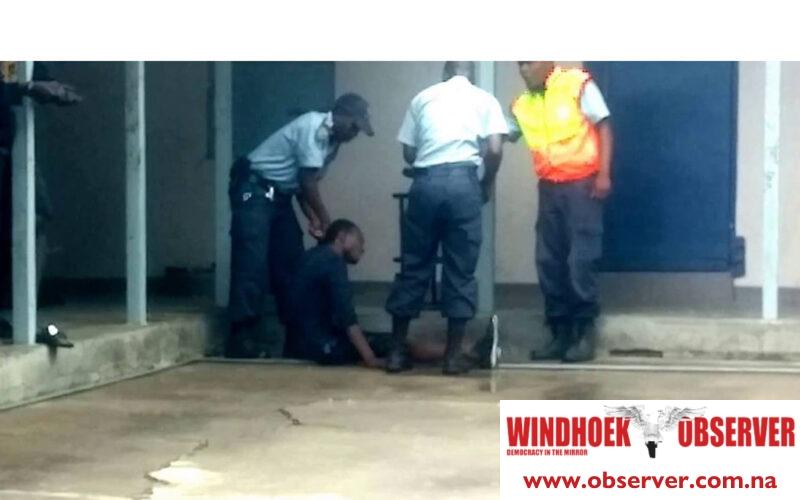Martin Endjala
The Namibian Police has condemned acts of brutality by its members following a recent report of brutality perpetrated by members of the military police.
The police were responding to a recent article about a 19-year-old man in Rundu who was arrested and assaulted by undercover military police while handcuffed last month.
At the time the victim was suspected of stealing phones from inhabitants of Rundu.
The national spokesperson of the Namibian Police, Deputy Commissioner Kauna Shikwambi, said there is no justification whatsoever for unnecessarily beating, kicking, or otherwise ill-treating an arrested person.
“There is no excuse whatsoever for a member to act in this manner,” she said.
She urged the public to report such incidents.
“As a rule, there should be no need for the use of force, and, in every case where it may be necessary, only such force as is absolutely necessary to overcome resistance to the arrest may be used,” she explained.
Shikwambi said arrest constitutes one of the most drastic infringements of an individual’s rights.
She said that, as a general rule, the purpose of an arrest is to secure a person’s attendance at his or her trial.
“Therefore, a police member may not arrest a person to punish, scare, or harass him or her,” she explained.
Shikwambi said that one must explain a suspect’s or accused’s rights at the time of or immediately after their arrest.
If the rights are not understood in the official language, Shikwambi said it must be given to the arrested person in a language he or she understands.
Police reasons to arrest:
“Arrest with a warrant: An arrest should be done by any peace officer after a warrant for the arrest has been issued by a magistrate in terms of section 43 of the Criminal Procedure Act, 1977.
Arrest without a warrant is only permitted in exceptional circumstances where a police official is specifically authorised by an Act of Parliament (for example, sections 40 and 41 of the Criminal Procedure Act, 1977) to arrest a person without the authority of a warrant.
Any arrest without a warrant, which is not specifically authorised by law, will be unlawful.
Section 40(2) of the Criminal Procedure Act, 1977, determines that if provision is made in a statute for a member to arrest a person without a warrant, subject to certain conditions or to the existence of certain circumstances mentioned in the Criminal Procedure Act, 1977, those conditions must be observed and those circumstances must exist before the arrest is made.
Amount of force which may be used in effecting arrest.
Detention Period: In terms of Article 11 (2) of the Constitution and Section 50 of the Criminal Procedure Act, a person may be detained for a maximum period of 48 hours.
Presumption of innocence: An arrested person is presumed innocent until proven guilty by a competent court of law”.
Entering of premises for the purpose of arrest.
“Section 48 of the Criminal Procedure Act, 1977, makes provision for the police officer to enter premises with the purpose of arresting any person who the officer has authority to arrest and who is known or suspected to be in/on such premises.
The police may however first; audibly demand entry into such premises; and notify/announce the purpose for which entry is sought.
If and when the police officer fails to gain entry after complying with the requirements such officer may break open, enter and search such premises for the purpose of effecting the arrest”.




